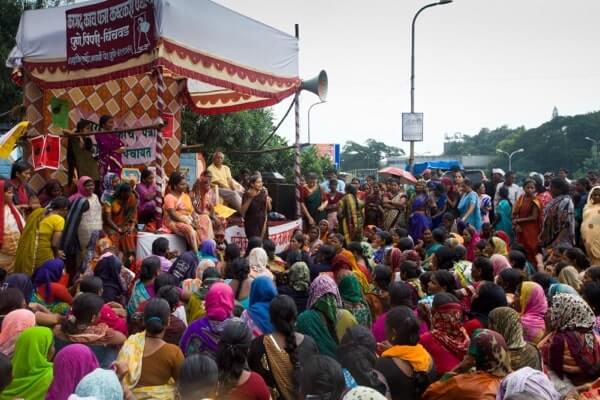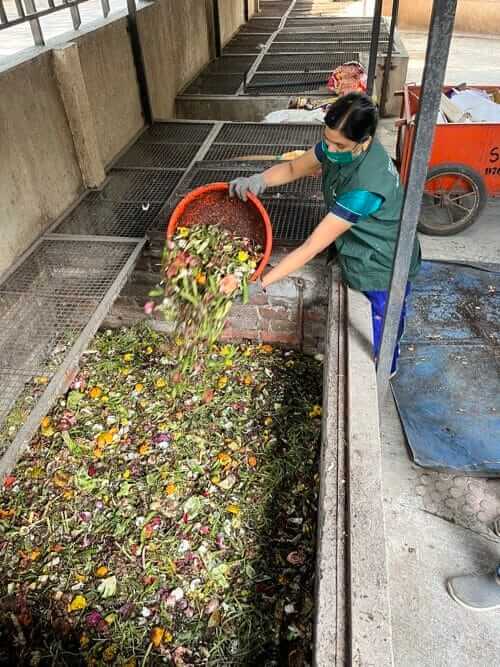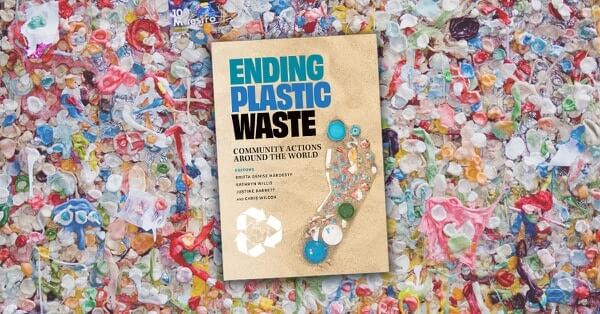Global plastic production will more than double by 2040. Currently, there are trillions of pieces of plastic already dumped in the oceans. Many individuals and organisations around the world have recognised this problem, and set in motion initiatives to turn trash into a resource.
In India, the Solid Waste Collection and Handling (SWaCH) Cooperative of Pune is one such organisation that is leading the way. And it has found a sweet mention in a new book published by Australia’s national science agency, CSIRO.
CSIRO is on a mission to end plastic waste, with a goal to reduce 80% of plastic waste entering the Australian environment by 2030.
Titled Ending Plastic Waste: Community Actions Around the World, their book highlights 19 programs from around 15 countries that are dealing with the plastic pollution crisis in impactful ways.
From India, one of the initiatives picked is SWaCH, spotlighting the valuable contributions of waste pickers who deserve credit for recycling plastic waste in Pune city.

The problem
SWaCH became operational in 2008, although the seeds for the model were sowed way back in the early 1990s.
It all began with a program on adult education.
Social activist and researcher Lakshmi Narayanan recalls, “We started working with waste-pickers in 1989-90 through SNDT Women’s University’s Department of Adult Education. We encountered some child waste-pickers, who expressed their interest in joining the adult education literacy classes. When we accompanied them on the field as they picked waste from the street to see their working conditions, we realised they were working long hours and would not be able to dedicate time for our classes.”
The activists asked institutions and citizens in the area to segregate their own waste so that the child waste-pickers could access the recyclables easily and get more time to attend class. “We got a good response from citizens to this,” Narayanan remembers. “And then, the mothers of these children, themselves waste pickers, came forward saying they will do waste collection and send their children to formal school.”

Slowly the community of these waste-pickers started mobilising others, in different pockets of the city. But it wasn’t a recognised profession. This was when the activists asked if the waste pickers were willing to form a trade union. And so, in 1993, the Kagad Kach Patra Kashtakari Panchayat (KKPKP) – a membership-based trade union was formed.
“These waste-pickers had migrated from Marathwada and Osmanabad regions of Maharashtra. But they could not get employment even as domestic help in Pune city, and turned to picking waste instead. When we asked them, they said they want to continue doing the work but would prefer the conditions of work to be enhanced. They were treated like the waste they collected. We want to change that.”
So how does the trade union operate, we ask. “A waste-picker, once enrolled, gets to be a member of the organisation. She has to pay a subscription fee to enter the union and share her issues and concerns about work, access to material, harassment from police, or anything that is significant to her, with other members during meetings. The benefits? Since she has paid a nominal fee, she has the right to turn and ask the union why her issues are not being resolved. She has 8,000 other members who will support her and watch her back in times of crisis.”

The solution
In 2000, the Municipal Solid Waste laws were passed, requiring door-to-door waste collection and segregation of waste. KKPKP launched a pilot program in collaboration with the Pune Municipal Corporation in 2005 where these waste-pickers were integrated into the door-to-door waste collection work.
After its successful launch, SWaCH was formed – India’s first cooperative wholly-owned by self-employed waste collectors. Under the SWaCH model, citizens must pay a nominal fee to receive door-to-door waste collection service. Households segregate their waste into dry and wet, which is then collected by SWaCH’s waste-pickers. They later deliver the organic waste to municipal trucks and transport the recyclables to sorting sheds. Here, waste is further sorted into different material streams.

“Over the years, Pune city has become sensitive towards the waste-picking community,” Narayanan shares. “If you speak to a picker, she will say she is now treated with respect. Her hours of work are fewer. She has agency and autonomy.”
The SWaCH model is decentralised and low-cost. But it needs genuine efforts by both pickers and the municipality for it to work.
“Currently, SWaCH’s 3,600 waste-pickers are servicing 10 lakh households in Pune. Every day, 212 tonnes of waste is diverted to recycling facilities. We also offer composting services now; around 9 tonnes of waste is composted everyday,” Narayanan adds.
As per CSIRO, each year, the SWaCH programme saves the municipality $13.6 million as it saves on additional administration and operational costs. The door-to-door waste collection formula is a hit among Punekars.




